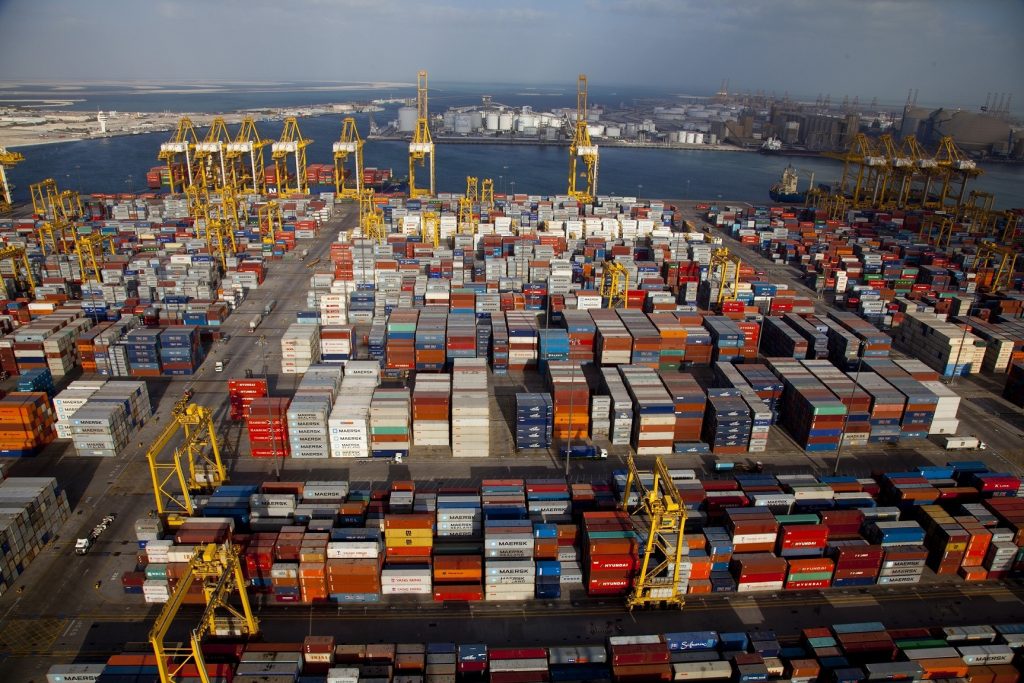
The Port of Jebel Ali, located in Dubai, UAE, is the largest man-made harbor in the world and the largest port in the Middle East. It serves as a major logistics hub for cargo transshipment between Europe, Asia, and Africa.
Jebel Ali’s location in Dubai makes it a vital gateway for trade between Europe, Asia, and Africa. It is situated close to the major shipping routes of the Arabian Gulf, allowing it to serve not only the UAE but also the wider Gulf Cooperation Council (GCC) region, the Indian subcontinent, and the East African coast. Its proximity to the Jebel Ali Free Zone (JAFZA) adds to its strategic significance, allowing seamless connections between sea, air, and land
Acts as a **central transshipment hub** between Europe, Asia, and Africa.
Serves over **140 ports worldwide**.
Is only 40 kilometers from **Al Maktoum International Airport**, facilitating integrated sea-air logistics solutions.
Container throughput: Jebel Ali is the busiest container port in the Middle East and handled approximately **13.5 million TEUs (Twenty-foot Equivalent Units)** in 2022, making it a top 10 container port worldwide.
Cargo volumes: The port handles over **80 million metric tons** of cargo annually, which includes containerized goods, dry bulk, breakbulk, liquid bulk, and vehicles.
Key trading partners: Major trade flows include imports from **China**, **India**, and **Europe**, while exports are sent to regions such as the Middle East, Africa, and Southeast Asia.
Major commodities:
Imports: Consumer goods, electronics, machinery, foodstuffs, and chemicals.
Exports: Oil, petrochemicals, aluminum, textiles, and manufactured goods.
Re-exports: Jebel Ali also plays a significant role as a re-export hub, facilitating trade from other regions to Africa, Asia, and the Middle East
Container terminals: Jebel Ali has three main container terminals, capable of handling ultra-large container vessels (ULCVs), each of which is equipped with automated technology for fast and efficient handling.
Terminal 1: The largest of the three terminals and one of the most advanced, it handles the majority of the port’s cargo volumes.
Terminal 2: Also large and highly efficient, it specializes in handling mega-vessels.
Terminal 3: Opened in 2014, it is fully automated and one of the largest semi-automated container terminals globally, with advanced quay cranes and container-handling equipment.
Bulk terminals: These handle the import and export of dry bulk commodities like cement, steel, and food grains.
RoRo terminals: Jebel Ali's RoRo terminals are vital for handling vehicles and heavy equipment, supporting the region’s growing automotive trade.
One Comment
The clarity and simplicity of your writing are a perfect complement to the depth of the ideas you explore.